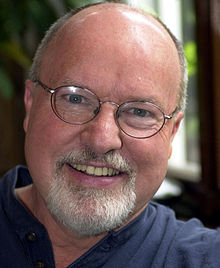The views expressed in our content reflect individual perspectives and do not represent the authoritative views of the Baha'i Faith.
A recent post here on BahaiTeachings.org focused on finding one’s true self–and that’s something I’ve thought a lot about lately, too.
In a world of so much superficiality and illusion, what is one’s “true self?” And, how do we find it? Interestingly, the Zen masters noted that one’s true self was “the face you had before you were born.” I hold to the notion that our first birth was a spiritual one and that, maybe, we spend our whole lives trying to get back to that place–to go home.
I remember a Baha’i song I grew up with: “We all come from God and unto Him shall we return, like a stream flowing back to the ocean or a ray of light returning to the sun.” One of my favorite passages in the Baha’i writings focuses on this numinous theme:
O My Friends! Have ye forgotten that true and radiant morn, when in those hallowed and blessed surroundings ye were all gathered in My presence beneath the shade of the tree of life, which is planted in the all-glorious paradise? Awe-struck ye listened as I gave utterance to these three most holy words: O friends! Prefer not your will to Mine, never desire that which I have not desired for you, and approach Me not with lifeless hearts, defiled with worldly desires and cravings. Would ye but sanctify your souls, ye would at this present hour recall that place and those surroundings, and the truth of My utterance should be made evident unto all of you. – Baha’u’llah, The Hidden Words, pp. 27-28.
This mystical passage speaks to a pre-existent place and time that our souls once knew. The poet William Wordsworth also contemplates this sense of immortality that, he claims, we understood more fully when we were young.
Our birth is but a sleep and a forgetting:
The Soul that rises with us, our life’s Star,
Hath had elsewhere its setting,
And cometh from afar:
Not in entire forgetfulness,
And not in utter nakedness,
But trailing clouds of glory do we come
From God, who is our home …
The poem, appropriately titled “Intimations of Immortality from Recollections of Early Childhood,” goes on to talk about some of the forgetfulness we experience later in life as “shades of the prison house begin to close,” as our vocations become “endless imitations,” and as the years bring an “inevitable yoke.” The poem, overall, has a hopeful tone because the earlier positive remembrances that Wordsworth mentions outweigh the later negative ones, but he also implies that we toil all our lives to find the “eternal mind” that we once knew.
The book Falling Upward by Richard Rohr, a Franciscan priest, comments on some of these same themes, and suggests that a lot of the anxiety and tension individuals feel today comes from a deep homesickness. Rohr claims that, if we stay stuck in the first half of our lives, the stage of achievement and performance, we never make it to the second half, the stage that allows us to find our true self and our spiritual joy.
The great psychologist Carl Jung said basically the same thing:
I have treated many hundreds of patients. Among those in the second half of life—that is to say, over 35—there has not been one whose problem in the last resort was not that of finding a religious outlook on life.
Maybe we experience some joy and remembering in the early part of our lives, get stuck in the mess and loss and suffering in the middle, and in our later years, learn what it means to let go of our many false identities and go back to our source and our spiritual roots. As I approach the second half of my own life, I certainly hope that’s the case!
When seeking passages in the Baha’i writings on a theme of returning to God, I came across this one. It speaks, in a lovely and mystical way, to this progression of the soul:
It behoveth him who is a wayfarer in the path of God and a wanderer in His way to detach himself from all who are in the heavens and on the earth. He must renounce all save God, that perchance the portals of mercy may be unlocked before his face and the breezes of providence may waft over him. And when he hath inscribed upon his soul that which We have vouchsafed unto him of the quintessence of inner meaning and explanation, he will fathom all the secrets of these allusions, and God shall bestow upon his heart a divine tranquility and cause him to be of them that are at peace with themselves. – Baha’u’llah, Gems of Divine Mysteries, p. 25.


















Comments
Sign in or create an account
Continue with Facebookor